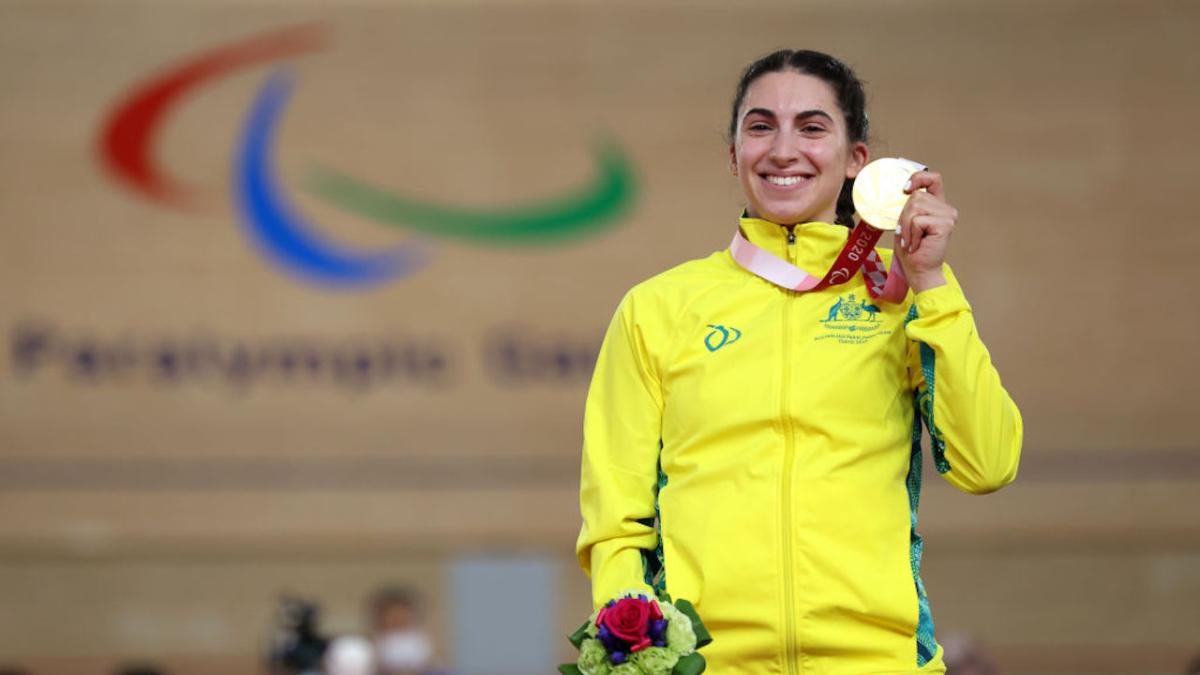
A little known fact about the Olympics is the cash bonuses athletes receive for winning a medal. If you get the gold – or pull an Emma McKeon and nab four of them – you get a $20,000 cash bonus from the Australian Olympic Committee. However, if you’re a Paralympian, there’s no such equivalent.
According to a report by SBS News, Paralympics Australia simply doesn’t have the money for cash bonuses and never has.
“In a perfect world, we would have equality across the board – in men’s sport, women’s sport, para-sport. But the reality is we are treated differently, and we lag behind,” sprinter and multiple medal-winner Scott Reardon told the outlet.
The Australian Olympic Committee pays out cash bonuses on a sliding scale: $20k for gold, $15k for silver, and $10k for bronze. In addition, some sports – notably swimming and rowing – benefit from financial support from Gina Rinehart, who contributes up to $10 million every year. It allows athletes to make training their full-time job, an opportunity missing for Paralympians.
“There’s a lot of para-athletes who simply don’t make much money. They have to work full-time and be a full-time athlete at the same time. It’s not conducive at all to being the best in the world,” Reardon told SBS News, calling for someone “like Gina Rinehart” to step in.
“I know a lot of Paralympic gold medallists who do not have a sponsor, who do not have a commercial agreement with any company, and I think that needs to change.”
Attn: Australia’s billionaires – are you listening?
That’s not to say Paralympians don’t receive any money. The Australian Institute of Sports (AIS) offers means-tested grants of up to $17,500 for athletes training to compete at a high level, including both the Olympic and Paralympic Games. There’s also federal funding; the Budget 2021-22 set aside $50.6 million in “high performance grants” for Olympic and Paralympic athletes.
But the fact remains that for many, earning an income is a necessity to competing in high level sports. A survey by the Australian Sports Foundation in 2020 found that most athletes who responded (including those both with and without disability) earned less than $23,000 per year, well below the national minimum wage of $39,000.
Instead, athletes are often forced to rely on their families to support their athletic careers. (Shocking news: being born into wealth pays off in untold ways, who knew.) The report found while 61% of respondents lost income during the pandemic, just 21% qualified for JobKeeper or JobSeeker, prompting concerns of the athletic equivalent of a “brain drain”: athletes quit the sport, and create a scarcity of future mentors, coaches and advocates.
While the disability community in Australia is no stranger to major inequalities (Australia ranks lowest among OECD countries for the relative income of people with disabilities), the lack of medal bonuses for Paralympians is yet another reminder of how Australia treats people with disability as less than. It’s not good enough.
One thing you can do? Tune into the Paralympics on Seven and support the Aussies going for gold. (Hey, we’re already won seven of them!) You can also find out how to support Paralympics Australia here.







